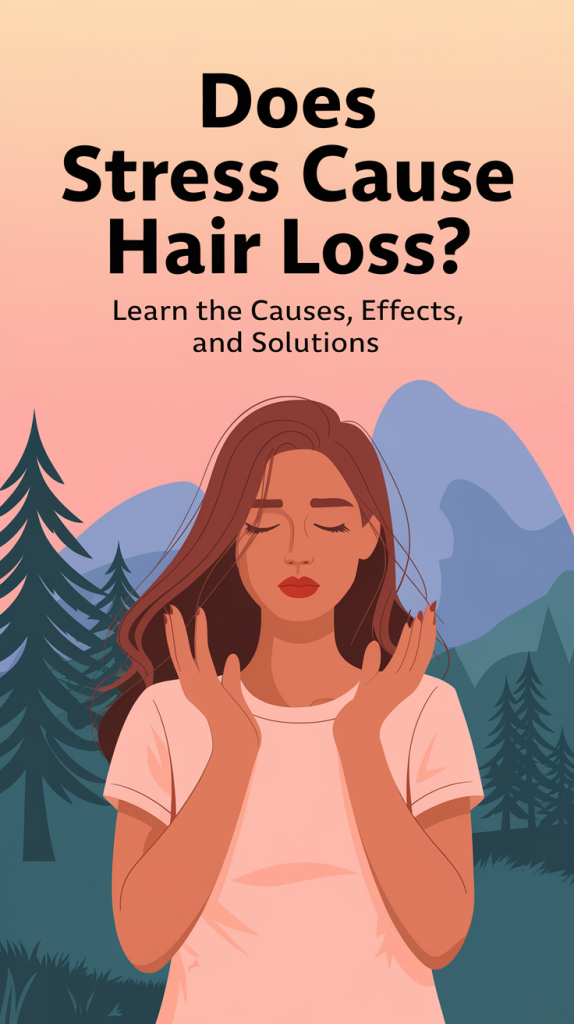Does Stress Cause Hair Loss?
Hair loss can feel like a deeply personal struggle, and when it happens during or after periods of high stress, the connection becomes even more apparent. On my journey to understanding this issue, I’ve learned that stress is indeed a major contributor to hair loss, but thankfully, there are ways to manage and even reverse it. Let’s dive into this fascinating and sometimes frustrating phenomenon.
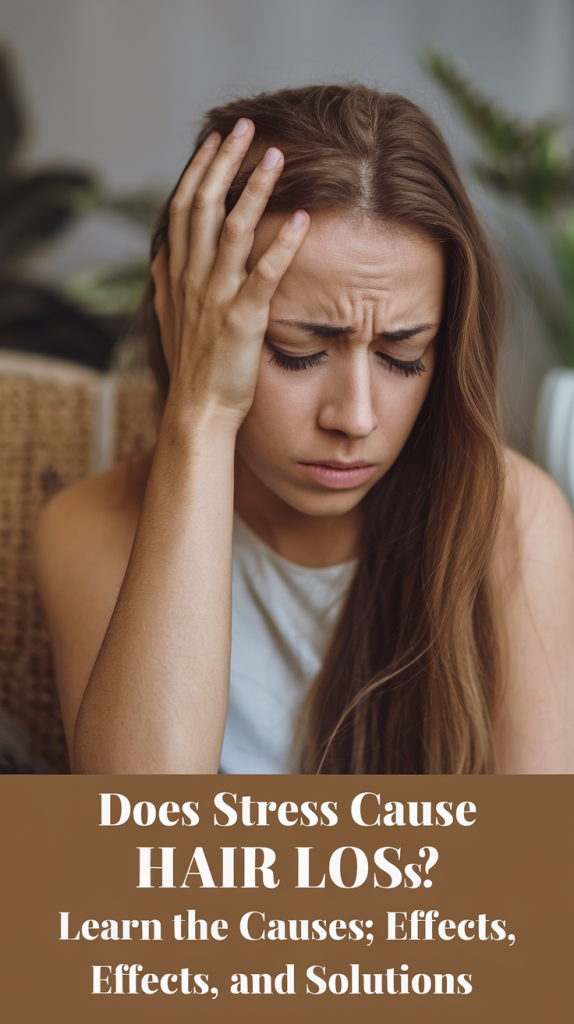
Understanding the Link Between Stress and Hair Loss
Stress-related hair loss can manifest in different ways. These types of hair loss are primarily categorized into three conditions:
Telogen Effluvium (TE)
This condition occurs when a significant number of hair follicles prematurely enter the resting phase (telogen) due to stress. The result? Noticeable shedding a few months later. The good news is that this type of hair loss is usually temporary and reversible.
| Telogen Effluvium at a Glance | Details |
|---|---|
| Cause | Sudden or chronic stress |
| Duration | 3–6 months (average) |
| Recovery | Often full recovery with stress management |
Alopecia Areata
This autoimmune condition is often triggered by severe stress, causing the immune system to attack hair follicles. The hair loss occurs in patches and can sometimes progress to complete baldness. While the condition may resolve on its own, medical treatments like corticosteroids can accelerate recovery.
Trichotillomania
Stress doesn’t just cause your hair to fall out; it can also drive you to pull it out. Trichotillomania is a compulsive urge to pull hair from the scalp, eyebrows, or other areas, often as a way to cope with stress or anxiety. Over time, this can lead to permanent damage if untreated.
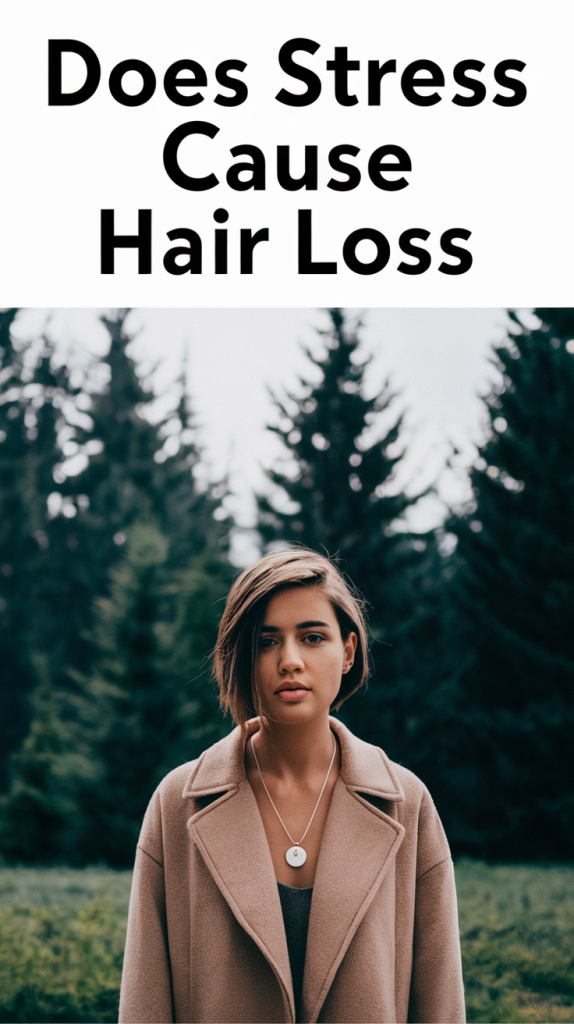
The Science Behind Stress and Hair Loss
When you’re under stress, your body produces higher levels of cortisol—a hormone that disrupts the natural hair growth cycle. Typically, hair follicles cycle through growth (anagen), transition (catagen), and resting (telogen) phases. Cortisol interferes with this process, pushing more follicles into the telogen phase, where they eventually shed.
Effects of Stress on Hair Follicles
- Reduced blood flow to the scalp.
- Hormonal imbalances that disrupt follicular activity.
- Increased inflammation around hair follicles, especially in cases of alopecia areata.
| Stress Effects on Hair Health | Impact |
|---|---|
| Elevated cortisol levels | Disrupted hair growth cycle |
| Nutritional deficiencies | Weakens hair structure |
| Scalp conditions | Dandruff, oily scalp |
Managing and Preventing Stress-Induced Hair Loss
While stress-related hair loss is frustrating, it’s often reversible with lifestyle changes and proper care. From my experience, tackling both the stress itself and its effects on your body is crucial.
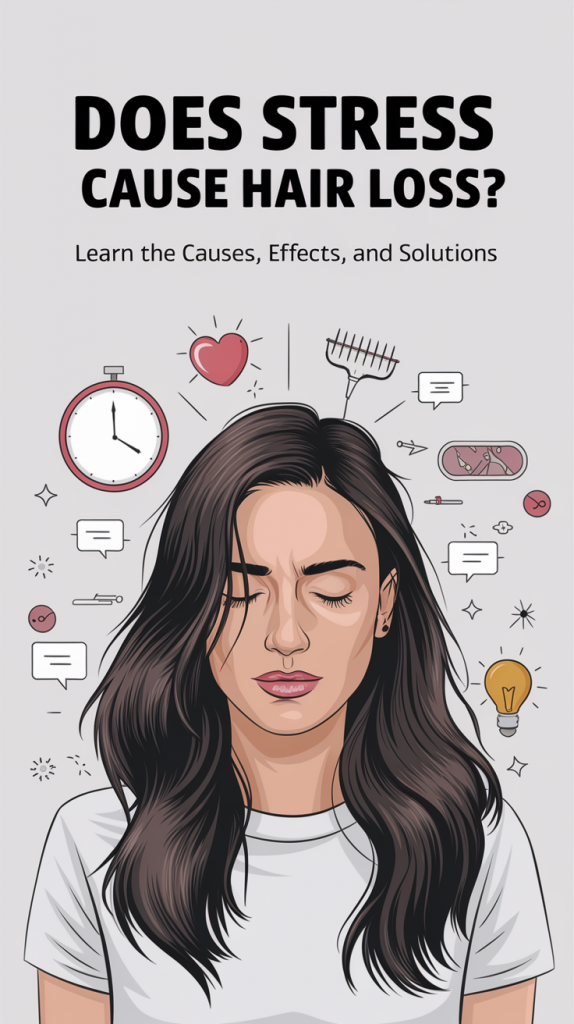
Stress Management Techniques
- Meditation and Breathing Exercises: A simple five-minute meditation can do wonders for cortisol levels.
- Physical Activity: Exercise releases endorphins, which naturally lower stress.
- Sleep Hygiene: Quality sleep allows the body to recover from stress and supports hair growth.
Nutritional Support for Hair Health
Stress can deplete your body of essential nutrients, so it’s vital to replenish them with a healthy diet:
- Iron: Found in spinach, lentils, and lean meats.
- Vitamin D: Sourced from fatty fish, eggs, and sunlight.
- Biotin: Abundant in nuts, eggs, and seeds.
| Essential Nutrients | Food Sources |
|---|---|
| Biotin | Eggs, almonds |
| Vitamin D | Salmon, fortified milk |
| Iron | Spinach, red meat |
Professional Treatments
If lifestyle changes and home remedies don’t work, consider these options:
- Topical Solutions: Minoxidil is a popular over-the-counter product that stimulates hair regrowth.
- Platelet-Rich Plasma (PRP): This advanced treatment involves injecting your own platelets into the scalp to stimulate follicle activity.
- Corticosteroids: Often prescribed for alopecia areata to suppress immune system attacks on hair follicles.
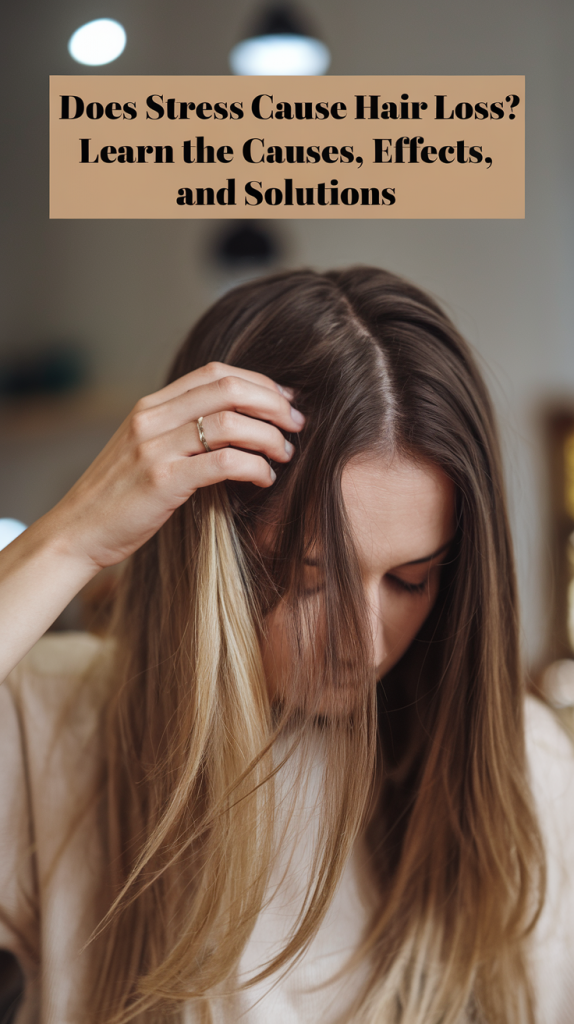
Breaking Myths About Stress and Hair Loss
- “Stress makes all your hair fall out permanently.”
False! Most stress-induced hair loss is temporary. With proper management, regrowth is almost always possible. - “You’ll see immediate hair loss during stress.”
Not always. Stress-related shedding often shows up 2–3 months later, as hair goes through its natural cycle. - “Hair loss from stress only happens to older adults.”
Hair loss due to stress can affect people of all ages, including young adults.
My Personal Take on Hair Loss Recovery
When I first noticed stress-induced hair loss, I felt overwhelmed. But incorporating small changes—like daily meditation, a balanced diet, and scalp massages—helped more than I expected. The key is to address the root cause of your stress while being patient with your body’s recovery process. Hair doesn’t grow back overnight, but it will.
Conclusion
Does stress cause hair loss? The answer is a clear yes, but the silver lining is that most forms of stress-related hair loss are temporary and manageable. By understanding the connection between stress and hair health, you can take proactive steps to reduce its impact. Remember, a healthy mind leads to healthy hair. If you’re struggling, don’t hesitate to seek professional advice for tailored treatments.
FAQs
1. Can stress cause permanent baldness?
Stress-induced hair loss is usually temporary. However, if left unmanaged for a long time, chronic stress can lead to more severe hair loss conditions.
2. How long does it take for hair to regrow after stress?
Hair regrowth typically begins within 3–6 months after reducing stress. Full regrowth can take up to a year.
3. Are there natural remedies for stress-related hair loss?
Yes! Scalp massages, essential oils like rosemary, and a nutrient-rich diet can support hair regrowth naturally.
4. What is the best way to prevent stress-induced hair loss?
Managing stress with meditation, regular exercise, and a healthy diet is the most effective prevention strategy.
5. Should I see a doctor for stress-related hair loss?
If hair loss persists or worsens despite reducing stress, consult a healthcare professional to rule out underlying conditions.
